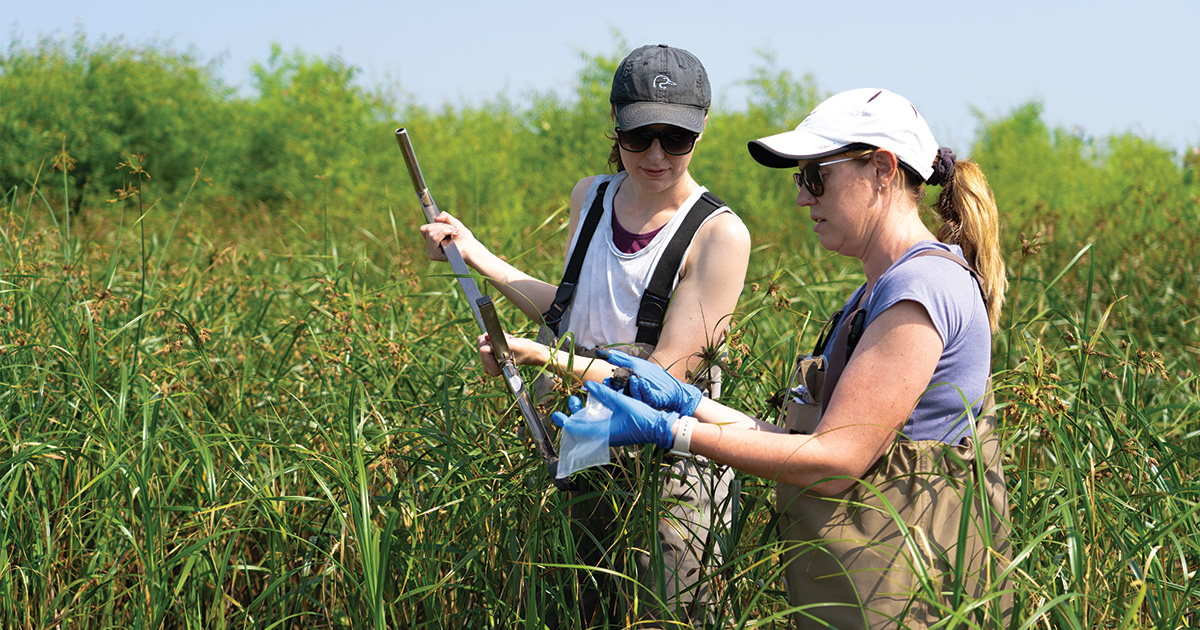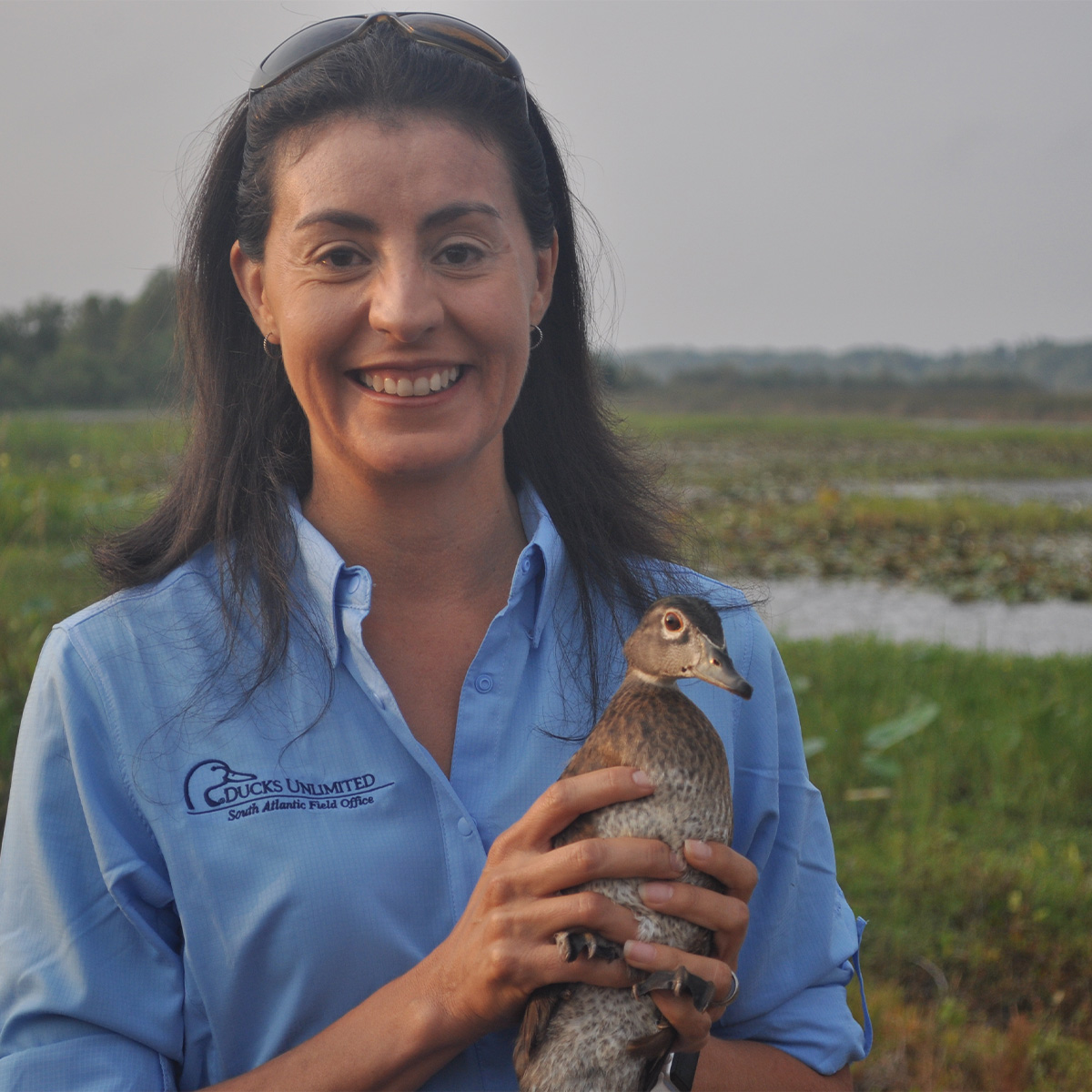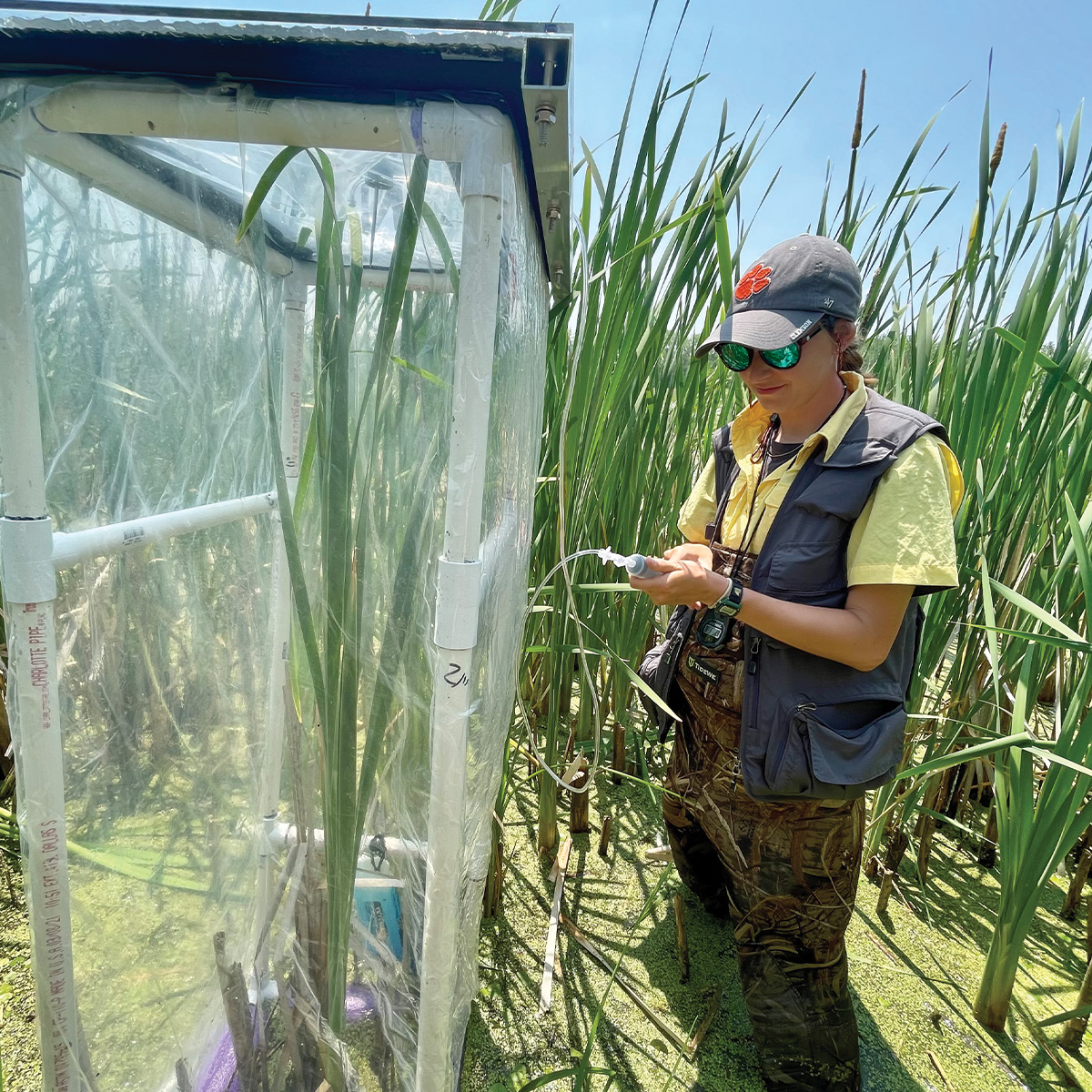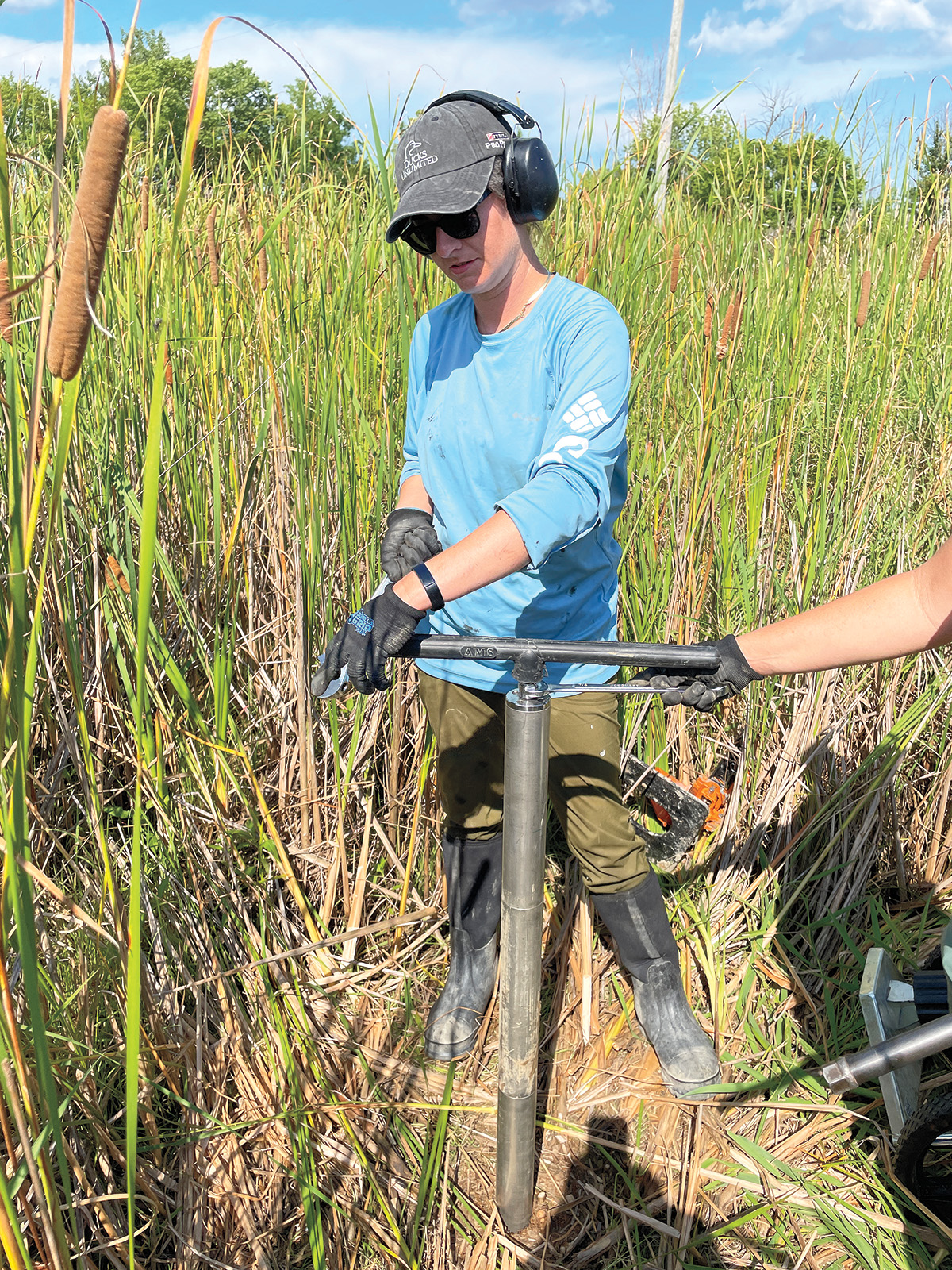Women in Science: Driving Positive Change for the Environment
Women are at the forefront DU’s mission by ensuring a future for conservation and leaving a legacy of nature for generations to come
Women are at the forefront DU’s mission by ensuring a future for conservation and leaving a legacy of nature for generations to come
By KayLeigh Mitchell, DU's sustainability communications coordinator

From coast to coast and wetlands to working lands, women are making significant strides at Ducks Unlimited in the field of science, particularly in environmental research and conservation efforts that have led to DU's historical record of 18 million conserved acres. These women spearhead efforts to address pressing environmental challenges, from water quality and biodiversity to renewable energy and natural infrastructure. Their dedication and expertise are driving innovative solutions and making a profound impact on the health of our planet. Through their research, advocacy, and leadership roles at DU, these women positively impact conservation efforts for wetlands, grasslands, and other waterfowl habitats.

Diana Iriarte, DU’s conservation lands coordinator, banding wood ducks at Santee National Wildlife Refuge.
One area where women scientists have made remarkable contributions is in waterfowl science, where they have conducted groundbreaking research in the conservation and management of populations nationwide. Their passion, expertise, and dedication have led to significant advancements in understanding waterfowl breeding ecology, nesting behavior, migration patterns, and conservation needs.
In addition to waterfowl research, DU's women scientists are making remarkable contributions to the study of climate control and a low-carbon economy. In 2023 alone, DU's science team sequestered 16,228 metric tons of carbon dioxide (CO2e) from the atmosphere, equivalent to removing 3,614 US passenger vehicles off the road for a year. By harnessing the potential of natural and engineered carbon storage techniques, these scientists are helping to reduce greenhouse gasses, improve soil functionality, and enhance carbon sinks through climate mitigation strategies.

Annika Kuleba, graduate research assistant, measuring greenhouse gasses in a wetland.
For years, women scientists have been driving innovation in sustainability by developing solutions to address environmental challenges and preserve our ecosystems. Last year, DU's conservation team of biologists, researchers, land specialists, and engineers completed 1,040 habitat projects. Whether studying restoring wildlife habitats, testing water samples, or advocating for conservation policies, their ideas and work are helping to shape the transition towards a more sustainable and resilient future.
Dr. Ellen Herbert, DU's senior scientist, highlights women's role in tackling sustainable conservation efforts.
"Women are at the forefront of DU's conservation science efforts, working tirelessly to evaluate waterfowl ecology and population dynamics, understand landowner's motivation for conservation practice adoption, promote sustainable water management practices, safeguard our planet's biodiversity, raise awareness about the importance of natural climate solutions, and create resilient landscapes that benefit both people and nature," she says. "These women serve as mentors and role models, inspiring the next generation of environmental leaders."

Dr. Ellen Herbert works to assess the many benefits wetlands provide.
Women are vital in advancing environmental research, conservation work, and sustainability initiatives. As we celebrate their contributions to DU and nature, let us continue to support and amplify women's voices in science, ensuring that their invaluable work continues to impact our world. By empowering more women and girls to pursue careers in science, we can unlock new perspectives and talents to take on tomorrow's environmental and conservation challenges.